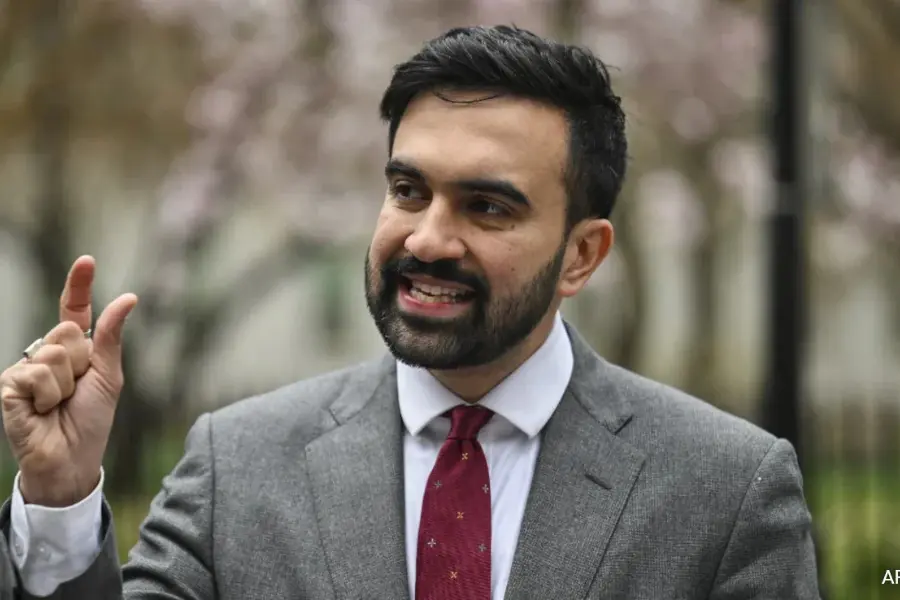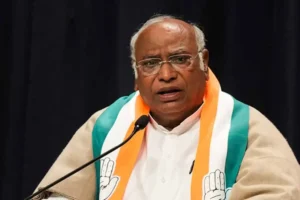
In a surprising turn of events for many political commentators, Zohran Mamdani has won the contest to be the mayor of New York City. It is a historic moment for New York. The significance of being the first Muslim and immigrant mayor of New York goes beyond political alignments. It is just as much a sign of global reach of the kind of welfare-driven worldview he represents. It is a logical counterpart to the Kejriwal Model in India. His platform of free rides on New York’s buses has created international headlines. It demonstrates how even a socialist message can gain traction in the very center of capitalist America.
A Public Welfare Model Following Kejriwal
Prior to Zohran Mamdani embarking on his campaign, Arvind Kejriwal, the former Delhi Chief Minister and Aam Aadmi Party (AAP) leader, made news with his announcement that free metro and bus rides would be available for women. This was launched in 2019. It aimed at increasing women’s mobility and addressing gender equality in part by addressing affordability.
Mamdani’s message to eliminate fares for buses run by New York City’s Metropolitan Transportation Authority (MTA) captures that same worldview. Riders Alliance, based in New York, anticipates that the proposal. It is expected to cost around $1.2 billion per year. This will increase ridership by 20–30%. Mamdani said the resources would be raised by taxing 2% of income over $1 million. This will be cutting non-viable subsidies to the corporate sector. Also, it is an idea drawing deliberation among economists and other policy analysts.
Like Kejriwal’s Pink Ticket program in Delhi, free bus rides is an attempt to ensure public transportation is available to all constituents. Also, it is with special emphasis on the working class and low income families.
From Delhi to New York: Free Transportation as a Populist Mobilizing Strategy
Free public transportation is not an entirely new idea. Countries in Europe, such as Luxembourg, Malta, and Estonia, have experimented and/or implemented fare-free systems in an effort to reduce human-induced pollution and to support public mobility.
But the difference here is that leaders like Kejriwal and Mamdani are taking a welfare proposal. They are making it a robust political proposal.
Kejriwal’s no-cost transits caused a massive increase of bus ridership of around 25%. It was also significant to AAP’s crushing victory in Delhi’s assembly elections in 2020. Encouraged by that evidence, Mamdani’s proposal makes sense to New Yorkers who suffer from high living costs in the city.
In 2023, the Community Service Society of New York published a report that noted one-fifth of residents were unable to afford subway or bus fares. For many people, Mamdani’s pledge to offer free bus service is more than just a political promise. It is rather a pledge of dignity and financial support.
Welfare that Extends Beyond Transportation
Mamdani’s social welfare plans expand beyond free bus service. In his bigger vision for the City of New York, he has a number of plans that exhibit the welfare-centred model of governance popularised in India by Kejriwal:
- Universal Childcare: Available free or very low cost to parents and caregivers of children 6 weeks to 5 years, potentially saving families as much as $15,000 a year.
- Rent Control: Implementing a limit of 3% for rent increase, helping over 1 million renters from the ever-increasing cost of housing.
- Community Markets: Opening five economies markets in each borough for selling food staples such as rice, milk and fresh produce at bulk prices.
These ideas are nearly identical to Indian-style welfare politics that feature targeted subsidies and services as the key attractions for elections.
Progressivism or Populism?
Critics assert that Mamdani’s proposals may overburden city finances and dampen private sector entrepreneurs. Meanwhile, supporters regard it as a truly innovative step toward equity in a city where wealth inequality continues to exacerbate.
In some ways, Mamdani’s model of governance challenges established notions of capitalism and urban economics including. His victory also indicates that welfare-oriented politics has moved beyond the narrow confines. Previously perceived as it would always be limited to developing national contexts.
Changing Political Contexts
From Delhi to New York, the “freebie”ism approach has evolved from being populist rhetoric to becoming a legitimate governance strategy. Whether or not you recognize it as influencing his policies, Kejriwal’s legacy is clear in Mamdani’s initiatives that offer both social equity and political capital.
With the trending news today, cycle revolving around Mamdani’s rise (and success), one thing is clear, the success of his “Kejriwal-inspired” government in the United States financial capital could influence how cities around the world will govern welfare and public transit.
Whether viewed as utopian ideals or new innovations, Zohran Mamdani’s “New York Model”, has very clearly been informed by practices “from Delhi”, and demonstrates that ideas of equity can transcend borders, cultures, and economic models.






Looking to get back in the game? JJJbetlogin seems like the place to do it. Quick and easy login process. Might be my new go-to. Get logged in jjjbetlogin!
Hey, anyone know much about this p828? Thinking of checking it out. Any inside scoop would be much appreciated!
bj88login.org gets right to the point. Quick login and straight to the game. Nothing fancy, but functional and easy to use – highly recommended! Here’s the link: bj88login
Bong88comcom, my go-to for Asian handicap betting! Always find good odds here. Check it out bong88comcom
Fala, apostadores! Tô buscando um app novo pra dar uns palpites e me indicaram o DonaldBetApp. Alguém usa? Acha que vale a pena baixar? Me contem! Se quiserem saber mais: donaldbetapp
23winslot? Name kinda speaks for itself, right? Slots galore! Some of them are surprisingly fun, and payouts aren’t terrible. Worth a spin or two, I reckon. More info here: 23winslot
Is anyone in the jjwinclub VIP? What’s it like over there? Worth grinding those points for? Any exclusive bonuses? jjwinclub
Been playing at phil168casino for a while now and gotta say, the game selection is top-notch. Fast payouts too! Definitely worth a shot. Give it a try at phil168casino.
abc8a7 is the real deal! Simple, clean, and gets you to your games quick! Great option imo. abc8a7
Hey everyone, betappcassino is giving it its all. Easy to browse and get to what you’re looking for. Have a look at betappcassino
Alright, gave sx777game a run. I had a blast! The gameplay was engaging, and the graphics are decent. Definitely a good way to kill some time. Go give sx777game a shot!
Alright, alright, let’s talk vnbet88. The live casino games are pretty slick. Had a good time playing blackjack. Definitely worth a look if you’re into that!
IBeth is pretty solid. I especially like how easy it is to get started. Gives you something fun to do when you’re bored ibeth
Yo, jililuckapp is worth a shot. The interface is smooth, and I haven’t had any issues with the app. Give it a whirl, guys! More info at: jililuckapp
G’day, guys! Been having a bit of a go on goldenhoyeah1. Not bad, I must say. Graphics are alright and the gameplay’s smooth enough. Worth a look-in: goldenhoyeah1
What i do not understood is in truth how you’re now not actually a lot more well-preferred than you might be now. You are so intelligent. You already know therefore considerably on the subject of this subject, made me in my opinion imagine it from numerous numerous angles. Its like women and men don’t seem to be involved unless it is one thing to accomplish with Woman gaga! Your personal stuffs great. At all times take care of it up!